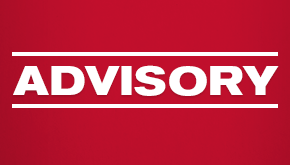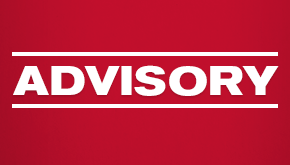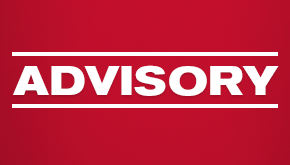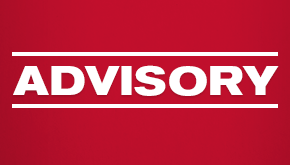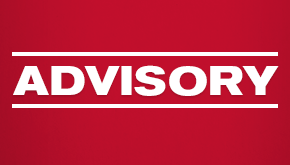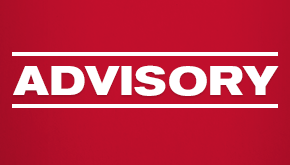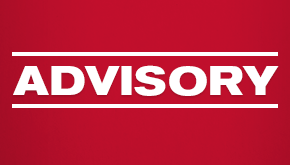Agencies Extend Benefit Plan Deadlines During the COVID-19 Outbreak Period
In response to the COVID-19 pandemic, the Internal Revenue Service (IRS) and Employee Benefit Security Administration (EBSA) have jointly issued a new final rule that extends certain deadlines that apply to employer-sponsored benefit plans. The new rule requires employers to disregard the Outbreak Period when determining certain key benefit plan deadlines. According to the new rule, the Outbreak Period began on March 1, 2020, and will extend until 60 days after the federal government announces the end of the National Emergency, or such other end date as announced by the IRS or EBSA.
Under the new rule, employers must extend, for the duration of the Outbreak Period, the existing deadlines for:
- special enrollment rights;
- COBRA continuation coverage administration, including premium payment and coverage election deadlines; and
- internal and external ERISA claims and appeals procedures.
1. Special Enrollment Rights
Background. Employers typically allow employees and beneficiaries to enroll in benefit plans during an annual open enrollment period. Outside of open enrollment, employees and beneficiaries are also allowed to enroll or change elections in benefit plans under limited circumstances during “special enrollment” periods. Events that give rise to a special enrollment right include getting married, giving birth to or adopting a child, or losing eligibility for other group health coverage or health insurance coverage.
Employees generally have a responsibility to notify the employer of the qualifying event within 30 days to receive special enrollment. This notice period may be extended to 60 days if the event that gives rise to the special enrollment right is the employee’s (or dependent’s) gain or loss of eligibility under a Medicaid or state child health plan.
New Rule. The new rule requires employers to extend the employee’s 30- or 60-day notice period for special enrollment rights. The applicable deadline for requesting special enrollment should be extended for the duration of the Outbreak Period.
For example, an eligible employee declined coverage in the employer’s health plan. On March 31, 2020, the employee gave birth and would like to enroll herself and her child in the employer’s health plan, but open enrollment does not begin until November 2020. As a result of the new rule, the employer is required to recognize the employee’s and her newborn’s special enrollment rights as early as the date of the child’s birth. Since the event that gives rise to her special enrollment right occurred during the Outbreak Period, the employee may exercise her special enrollment rights until 30 days after the end of the Outbreak Period.
2. COBRA Continuation Coverage
Background. With respect to a group health plan, an employer must generally provide COBRA continuation coverage if a participant has a qualifying event, such as an employment termination or a reduction in hours resulting in a loss of eligibility for health coverage. The COBRA continuation coverage has to be offered to all qualified beneficiaries, including a spouse or dependent who participates in the group health plan.
COBRA continuation coverage typically has three types of deadlines: (1) notice deadlines for the employer and plan administrator; (2) for some qualifying events, notice deadlines for the employee and/or dependents; and (3) election and payment deadlines for qualified beneficiaries.
Notice Deadlines. Within 30 days of an employee’s qualifying event, an employer is generally required to give notice to the plan administrator. Within 14 days of receiving notice from the employer, the plan administrator must give the qualified beneficiaries the COBRA election notice. If the qualifying event is a divorce or dependent ceasing to satisfy the eligibility requirements for coverage, the employee or other family member must notify the employer of the qualifying event within 60 days.
Election and Payment. After receiving the COBRA election notice, the qualified beneficiaries generally have at least 60 days to elect COBRA continuation coverage under the group health plan. The group health plan cannot require a qualified beneficiary to begin making monthly premium payments until 45 days after the day of the initial COBRA election. In addition, any subsequent monthly premium payments are considered timely if the qualified beneficiaries make payment within 30 days of the beginning of each month.
New Rule. The new rule extends the COBRA notice deadlines for the employer, plan administrator and qualified beneficiaries during the Outbreak Period. In addition, the new rule extends the COBRA election deadline and defers all premium payment due dates, including the initial premium payment and all subsequent monthly payments, for qualified beneficiaries to participate in COBRA continuation coverage during the Outbreak Period.
For example, an employee participates in the employer’s group health plan. During the Outbreak Period, the employee experiences a qualifying event for COBRA purposes as a result of a reduction in hours below the group health plan’s eligibility requirements and has no other coverage. The employer provides the COBRA election notice on April 1, 2020. The employer must allow the employee to elect COBRA continuation coverage until 60 days after the end of the Outbreak Period. The initial premium payment is due no earlier than 45 days after the employee’s initial COBRA election. Assuming the employee timely elects COBRA continuation coverage and timely pays premiums, the COBRA continuation coverage must be provided from the date when the employee lost eligibility during the Outbreak Period.
3. ERISA Claims and Appeals Procedures
Background. Certain employer-sponsored benefit plans are required to have ERISA claims and appeals procedures and give participants the right to appeal adverse benefit determinations. These ERISA requirements generally apply to broad-based retirement plans and most health and welfare plans. In addition, most group health plans are required to have an external review process for adverse benefit determinations.
New Rule. The new rule requires a plan to extend the existing deadlines under its internal and external ERISA claims and procedures for the duration of the Outbreak Period.
The new rule contains additional helpful examples.
Additional Relief
In addition, EBSA issued a notice, approved by the IRS and Department of Health and Human Services, which relaxes certain notice deadlines for employers and plan administrators. For any notice disclosure or document that must be furnished by a plan or fiduciary during the Outbreak Period, the plan and fiduciary will not be in violation of ERISA if the plan and fiduciary “act in good faith and furnish the notice, disclosure, or document as soon as administratively practicable under the circumstances.” The notice specifically provides that “good faith acts include use of electronic alternative means of communicating with plan participants and beneficiaries who the plan fiduciary reasonably believes have effective access to electronic means of communication, including email, text messages, and continuous access websites.”
The guidance also includes limited relief related to verification procedures for plan loans and distributions, issuance of plan loans that comply with the coronavirus-related loans permitted under the CARES Act, and timeliness of contribution of participant salary deferrals into retirement plans. With respect to general compliance with ERISA’s fiduciary responsibilities, the notice provides that “[t]he Department recognizes that affected plan participants and beneficiaries may encounter problems due to the COVID-19 outbreak. The guiding principle for plans must be to act reasonably, prudently, and in the interest of the covered workers and their families who rely on their health, retirement, and other employee benefit plans for their physical and economic wellbeing. Plan fiduciaries should make reasonable accommodations to prevent the loss of benefits or undue delay in benefits payments in such cases and should attempt to minimize the possibility of individuals losing benefits because of a failure to comply with pre-established timeframes.”
Next Steps
Procedures should be established to permit retroactive enrollment elections for special enrollment events that occur during the Outbreak Period. Employers should also take steps to adjust the administration of COBRA continuation coverage under their group health plans. If this administration has been outsourced, communicate with the vendor to ensure that the vendor is putting measures in place to allow extended election periods and will not terminate coverage during the Outbreak Period due to nonpayment of premiums. In addition, adjustments should be made to the administration of claims under all ERISA plans to comply with the extended dates for filing and appealing claims.
To help with potential compliance issues, employers should consider adopting plan amendments to incorporate these changes. Coordination with third-party administrators and stop-loss carriers regarding the administration of benefit plans during the Outbreak Period is advisable. Lastly, employers should consider a strategy to communicate these changes to participants and beneficiaries in affected plans.


